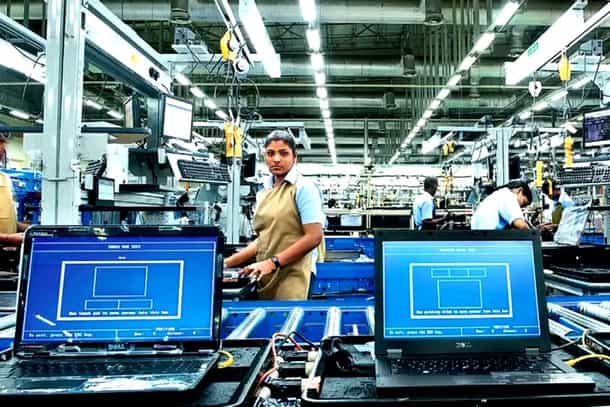Tech
Asus, HP, Dell And Foxconn Among 38 Firms To Apply For Laptop, PC Manufacturing In India Under PLI Scheme
Swarajya Staff
Aug 31, 2023, 09:05 AM | Updated 09:24 AM IST
Save & read from anywhere!
Bookmark stories for easy access on any device or the Swarajya app.


As part of the Centre's modified production-linked incentive (PLI) scheme for IT hardware, 38 companies, including Asus, Dell, HP, and Foxconn, have submitted applications to manufacture laptops, personal computers, and servers in India.
Notably, Apple has chosen not to participate in the scheme.
This comes weeks after the Centre imposed a licence requirement on the imports of laptops, tablets and PCs, alarming major electronics hardware manufacturers.
However, this move has been postponed until 31 October, providing some relief to the firms.
The modified PLI scheme is expected to result in an estimated incremental production of Rs 3.35 lakh crore over six years.
The incremental investment in the country during this period is projected to be Rs 4,000 crore.
Union Minister for Electronics and IT, Ashwini Vaishnaw, has reportedly said that the government estimates that the manufacturing process could generate 75,000 direct jobs.
Other companies that have applied for the PLI scheme include Lenovo, Acer, and Flex, the manufacturer of Reliance's JioBook laptop.
Meanwhile, HP Enterprises (HPE) has also expressed interest in manufacturing servers in India.
After the implementation of import restrictions, it was reported that only two companies had applied for the modified IT hardware PLI by 4 August.
However, 44 companies had registered with the intention to apply.
Within 26 days, the number of applicants increased by 36, bringing the total to 38. The deadline for application was 30 August.
The IT Hardware PLI was initially approved in 2021 with a budget of Rs 7,350 crore.
However, in May of this year, the government decided to increase the budget to Rs 17,000 crore.
The first version of the scheme did not perform well, with only Dell and Bhagwati meeting the targets for the first year. As a result, the industry called for a renewed scheme with a higher budget.
Under the restructured scheme, the average incentive over six years will be around 5 per cent of net incremental sales, compared to the previous offer of 2 per cent over four years.
Further, companies that locally manufacture specific components like memory modules, solid state drives, and display panels will receive additional incentives.
The scheme also allows flexibility in choosing the base year.
Officials estimate that the total benefits, based on companies' sales projections, could reach a PLI of Rs 22,880 crore.
Dell, the only major brand to participate in the earlier version of the scheme, is expected to migrate to the new scheme.
However, the government still needs to approve payment of around Rs 50 crore to Dell for its production under the first scheme.
According to Vaishnaw, there were no concerns raised by the applicants regarding the import restriction and its impact on the PLI scheme, as stated in response to a question by The Indian Express.
Following the notification of import restrictions by the Director General of Foreign Trade (DGFT), major tech companies like Apple and Samsung halted their imports until there was more clarity on the matter.
Some manufacturers also had their shipments held at customs due to the sudden directive.
A total of 38 companies have applied for the PLI scheme, with an estimated incremental investment of Rs 4,000 crore over six years (approximately Rs 650 crore per year on average).
The individual incentives for each company are not yet known, but in May, the government increased the PLI outlay for IT hardware to Rs 17,000 crore.
Recently, industry associations representing companies such as Apple, Dell, and HP wrote to the US government expressing their opposition to New Delhi's decision and requesting intervention to initiate a dialogue with the Indian government in order to reconsider the policy.
India has experienced a significant increase in the import of electronic goods and laptops/computers in recent years.
From April to June of this year, the import of electronic goods rose to $6.96 billion, compared to $4.73 billion during the same period last year. This accounts for a share of 4-7 per cent in overall imports.
Out of the seven categories that are restricted for imports in India, the majority of imports come from China.
In the latest available data from April to May, India's imports from China for these seven restricted categories were valued at $743.56 million. This represents a 5.6 per cent decrease from $787.84 million.
The largest share of imports is in the category of personal computers, including laptops and palmtops.
In April to May of this year, imports from China in this category amounted to $558.36 million, compared to $618.26 million in the same period last year.
China accounts for approximately 70-80 per cent of India's imports of personal computers and laptops.





